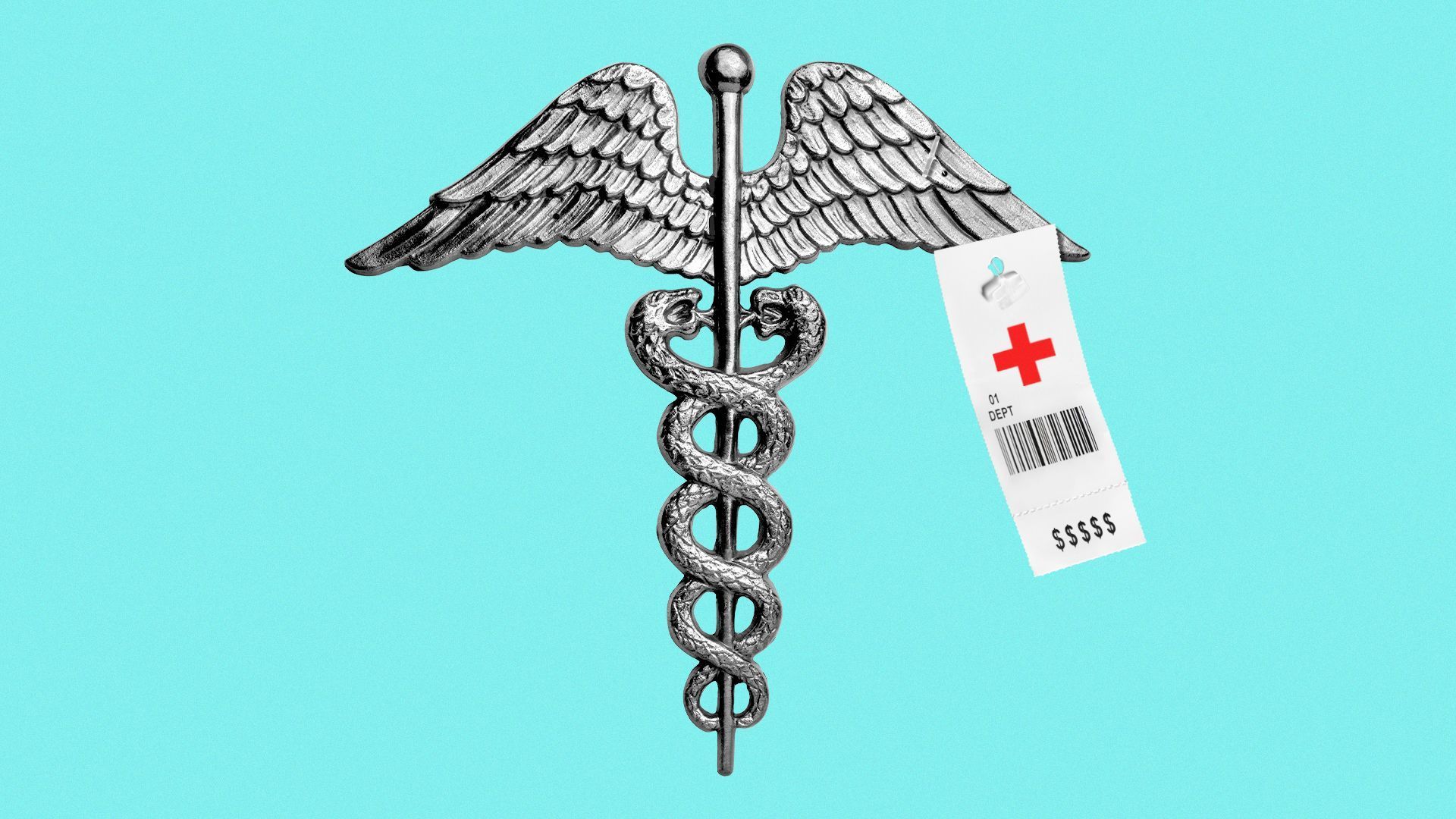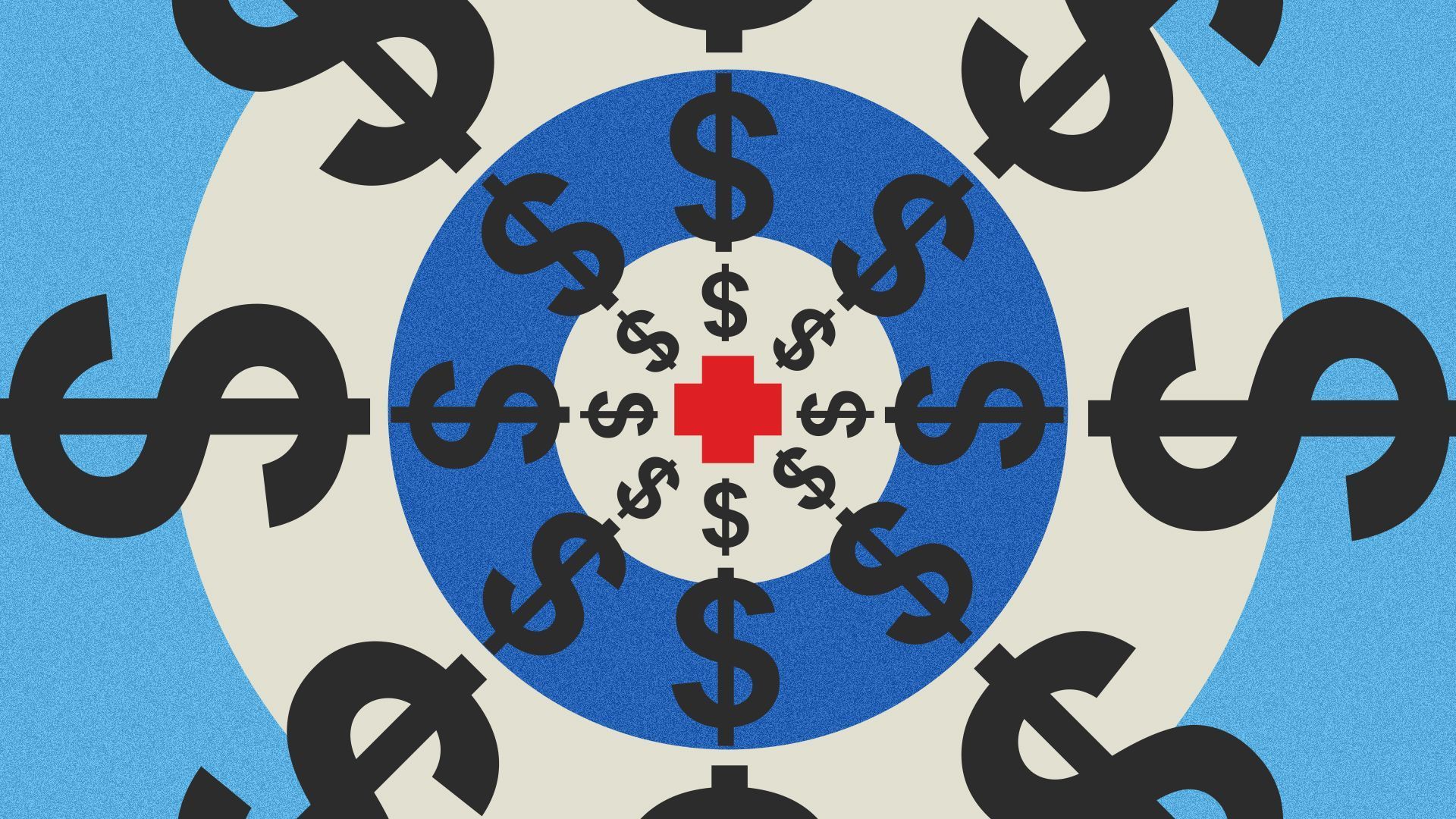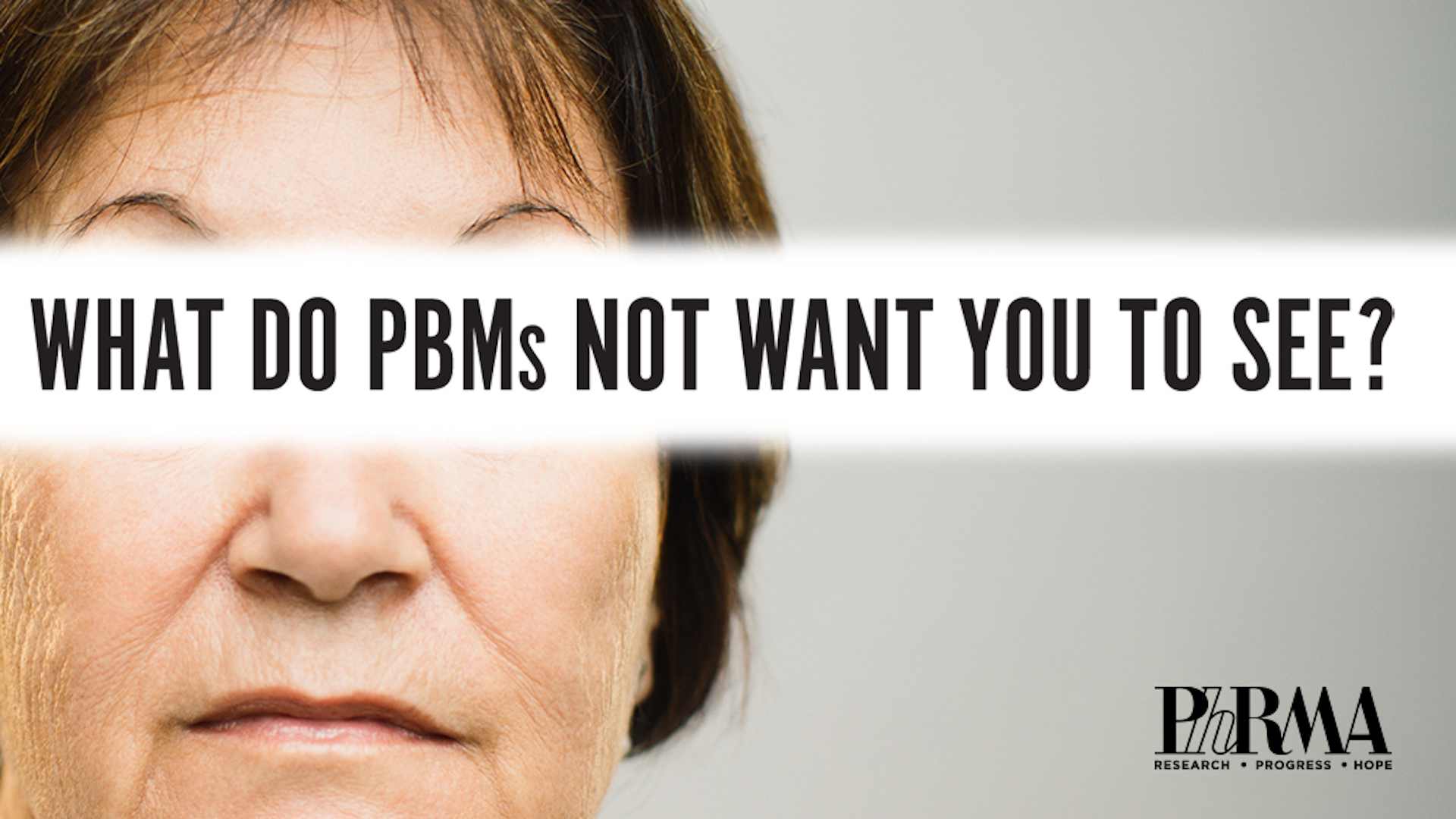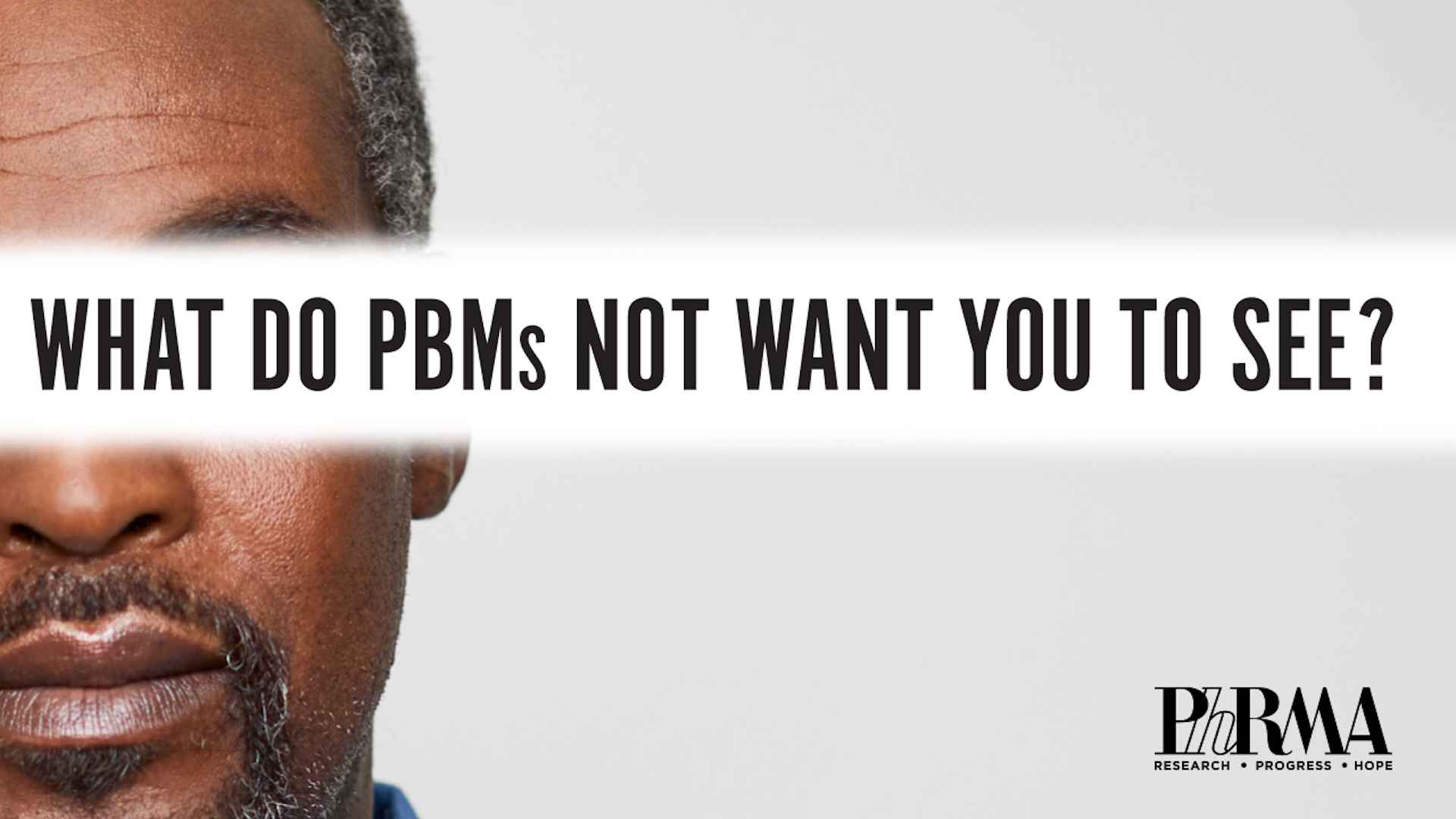| |
| |
| |
| Presented By PhRMA |
| |
| Axios Vitals |
| By Tina Reed · Apr 04, 2023 |
| Good morning, Vitals readers. Today's newsletter is 936 words or a 3½-minute read. 💻 1 tracking thing: Third-party tracking software — the kind that transfers online data to large technology companies, social media companies, advertising firms, and data brokers — is present on 98.6% of hospital websites, a new study out of the University of Pennsylvania found. |
| |
| |
| 1 big thing: FTC shows health care muscle in blocking Illumina-Grail deal |
 |
|
| Illustration: Gabriella Turrisi/Axios |
| |
| The decision by the Federal Trade Commission to block DNA sequencing behemoth Illumina's $7.1 billion purchase of Grail puts the focus on how much power one company should wield in the burgeoning cancer detection market. Driving the news: The FTC on Monday rejected the deal, saying the combination of Grail — which makes liquid biopsy tests — with Illumina, the only provider of sequencing for multi-cancer early detection (MCED) tests will "stifle competition and innovation in the U.S. market." Catch up quick: Illumina is a $36 billion company that specializes in DNA sequencing and array-based technologies. The big picture: The FTC action is evidence of the Biden administration antitrust team's increased focus on health care mergers. - "I think it's a sign they haven't abandoned that more pro-enforcement agenda," said Rebecca Haw Allensworth, an antitrust professor at Vanderbilt Law School, told the Wall Street Journal.
What they're saying: Conor McNamara, an RBC Capital Markets' health care analyst, said Monday the FTC's move was in line with expectations, saying he believes "the Grail distraction is coming to an end." - "We read [the ruling] as the FTC is saying, 'Look, if sequencing was a widely available technology that anyone could provide to the test makers, it wouldn't be a big deal but Illumina is really the only game in town," McNamara told Axios. "That's part of why we like the Illumina stock ... there's no real competition."
Read the rest. |
    |
| |
| |
| 2. Cash payments likelier to get hospital discount |
 |
|
| Illustration: Natalie Peeples/Axios |
| |
| Hospitals routinely charge less to patients who pay in cash and some seek to recoup the difference from commercially insured patients in markets where they can exert leverage, according to a study published in Health Affairs, writes Axios' Adriel Bettelheim. Why it matters: The Johns Hopkins analysis for 70 services as of September 2022 provides another window into the opaque world of hospital pricing and could be a data point for employers in their negotiations with insurers or directly with providers. - It also showed how 17 months after the implementation of a federal hospital price transparency rule, nearly half of the general acute care hospitals still had not disclosed most of their prices, the authors noted.
What they found: Hospitals routinely calculated cash prices and commercially negotiated rates in increments of a 5% discount from list prices, or "chargemasters." - Cash prices were likelier to be lower than negotiated rates at nonprofit or government-owned hospitals that see more uninsured patients — and in areas with strong hospital market power.
- Overall, cash prices were lower than or equal to the median negotiated rates for the same procedure in the same hospital 47% of the time — most commonly for consultations, exams and other "evaluation and management" services.
|
    |
| |
| |
| 3. Inflation helped drive ACA premiums up 3.4% |
 |
|
| Illustration: Shoshana Gordon/Axios |
| |
| Inflation and higher health spending helped drive monthly premiums for Affordable Care Act coverage up an average of 3.4% between 2022 and 2023, reversing several years of declines, according to a new report from the Urban Institute and the Robert Wood Johnson Foundation, Axios' Arielle Dreher writes. Why it matters: Some of the increase was also attributed to uncertainty over whether Congress would extend or make permanent premium subsidies, which complicated insurers' decision-making. Extending subsidies would incentivize healthy people who choose to buy coverage previously deemed unaffordable. What they found: There were considerable regional variations, with consumers in smaller cities and rural areas bearing a higher burden. - The average silver plan benchmark premium increased from $438 to $453 in the last year for a 40-year-old nonsmoker.
- Markets with a single insurer had premiums that were $128 more than in markets with five or more insurers.
- States like West Virginia and Wyoming had the highest average benchmark premiums in 2023, at over $800.
|
    |
| |
| |
| A message from PhRMA |
| What's a pharmacy benefit manager (PBM)? |
| |
 |
| |
| They decide if medicines get covered and what people pay for them, regardless of what your doctor prescribes. These middlemen are putting their profits before your wellness. And getting between you and your doctor. You need to see what's going on. |
| |
| |
| 4. By the numbers: 1 in 6 globally experience infertility |
 |
|
| Illustration: Sarah Grillo/Axios |
| |
| Approximately 1 in 6 people experience infertility at some stage in their lives, according to a new report from the World Health Organization, Axios' Oriana González writes. Why it matters: Despite the large number, access to fertility treatments remains scarce due to "high costs, social stigma and limited availability," said WHO director-general Tedros Adhanom Ghebreyesus. - This is the first time in a decade that WHO releases a report on the prevalence of infertility, which it defined as "the failure to achieve a pregnancy after 12 months or more of regular unprotected sexual intercourse."
Details: WHO examined data from 1990 to 2021, finding that roughly one in six people globally — 17.5% — have been unable to have a child at some point in their lives. - In the Americas, infertility prevalence was higher, at about 20%.
- The WHO found that infertility prevalence did not vary significantly with different income levels. High-income countries had a lifetime infertility prevalence of 17.8% and low- and middle-income countries had 16.5%.
Share this story. |
    |
| |
| |
| 5. Catch up quick |
| 👑 The "King Kong" of weight-loss drugs is coming. (Wall Street Journal) 💰 States step in as telehealth and clinic patients get blindsided by hospital fees. (KHN) 🏥 Hospitals that pay trustees offer less charity care, study finds. (Axios) 👁 Drug-resistant bacteria tied to eyedrops can spread person to person. (New York Times) |
    |
| |
| |
| A message from PhRMA |
| Insurers and PBMs don't pay full price for your medicines. So why do you? |
| |
 |
| |
| Insurers and pharmacy benefit managers (PBMs) get discounts on medicines. Surprised? These savings can reduce the cost of some brand medicines by 50% or more, but insurers and PBMs aren't required to share these savings with you. See what else they don't want you to know. |
| |
| Thanks for reading, and thanks to senior health care editor Adriel Bettelheim and senior copy editor Bryan McBournie for the edits. |
 | | Dive deeper into the future of health care | | |
No comments